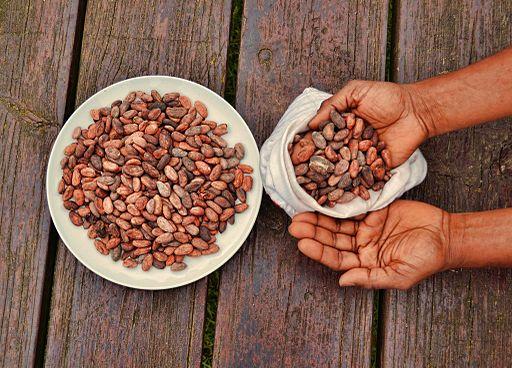Curbing illicit financial flows from resource-rich developing countries: Improving natural resource governance to finance SDGs

Drawing on economics, law, political science, this interdisciplinary project seeks to engage in intensive process-tracing across multiple sources of data and methods in order to examine the mechanisms, strategies and policy innovations through which IFFs can be significantly reduced in given institutional, legal, political and economic settings.
About the project
Background
The implementation of the sustainable development goals (SDGs) in developing countries is expected to be financed primarily by domestic resources. Yet this endeavour is undermined by significant levels of illicit financial flows (IFFs) that erode the ability of developing countries to raise the required tax revenues. IFFs are defined as cross-border movements of money that is wrongfully earned, transferred, or utilized. This implies that even in cases where the money is legitimately earned, it can become illicit if transferred abroad in violation of exchange control regulations, corporate tax law or international tax agreements. Since the 2008 financial crisis and the adoption of the SDGs in 2015, IFFs have garnered increasing policy traction and scholarly attention. However, research to date – conducted primarily by think-tanks and advocacy groups – suffers from poor data and methodological concerns.
In theory indeed, the revenues drawn from natural resource extraction should result in greater domestic revenue mobilization, which can serve to finance social expenditures and public investments. An abundant literature, however, indicates that this is not the case, in part due to high levels of commodity trade-related IFFs. The latter may result from trade mispricing (under-invoicing of commodity exports to reduce export duties and corporate income tax) or abusive transfer pricing (trade mispricing between affiliates of the same multinational group).
Objectives
The objectives of this project are twofold: to improve our knowledge and understanding of commodity trade-related IFFs and, on that basis, to design and promote policies (national and international) to effectively curb such IFFs. The project addresses four related, research questions:
- How can we improve existing methodological approaches to ascertain the volume and channels of commodity trade-related IFFs?
- What are the main incentives and legal/regulatory issues that explain the persistence of IFFs?
- Who are the major stakeholders exerting a significant influence on IFFs in commodity producing countries and trading hubs?
- What are the most promising policy responses at national, regional and global levels, to effectively curb commodity trade-related IFFs?
The project seeks to deliver the following five outcomes:
- Rigorous scientific evidence and stronger research capacities : the project will propose ways to improve data-collection and methodological approaches to generate credible evidence on IFFs by promoting stronger research capacities through North-South, interdisciplinary collaboration.
- Effective policy change : evidence-based policy recommendations will result in more effective policy responses and regulatory initiatives to curb trade-related IFFs not only in the country cases, but also globally.
- Greater engagement from the private sector : predictability of the regulatory environment is vital for private businesses, therefore scientific evidence shall result in greater engagement from corporate actors with an aim to enlarge and deepen global partnerships required to reduce IFFs.
- Empowered civil society : by providing publicly-available evidence on trade and transfer mispricing and the incentives behind IFFs, civil society organizations will be enabled to effectively campaign for the reduction of IFFs and channel additional revenues towards the SDGs.
- Greater awareness in the media and the general public : through a documentary film on commodity trade-related IFFs and online training modules, the project will contribute to greater awareness on the challenges and opportunities from curbing IFFs for the purpose of domestic resource mobilization.
Relevance
This project addresses major research gaps in this domain, reflected by the paucity of peer-reviewed academic journal articles on IFFs. Much of the relevant literature originates from transnational advocacy groups, think-tanks and international policy organizations, which rely on guesstimates in the face of data and methodological constraints. As a result, there is a dearth of analytic and rigorous empirical contributions on IFFs related to commodity trade, and the phenomenon remains poorly understood. This research project brings together a multidisciplinary team of academics to examine the nature, extent and key drivers of IFFs related to commodity trading, and therefore offers the potential to catalyse academic debates and informed policy decisions on IFFs in producer countries as well as in commodity-importing and trading countries.
Geographic scope
- Ghana
- Laos
Project website and links to P3
- Link to project website
- Links to project phase
) and to project phase
) on SNSF research database P3
